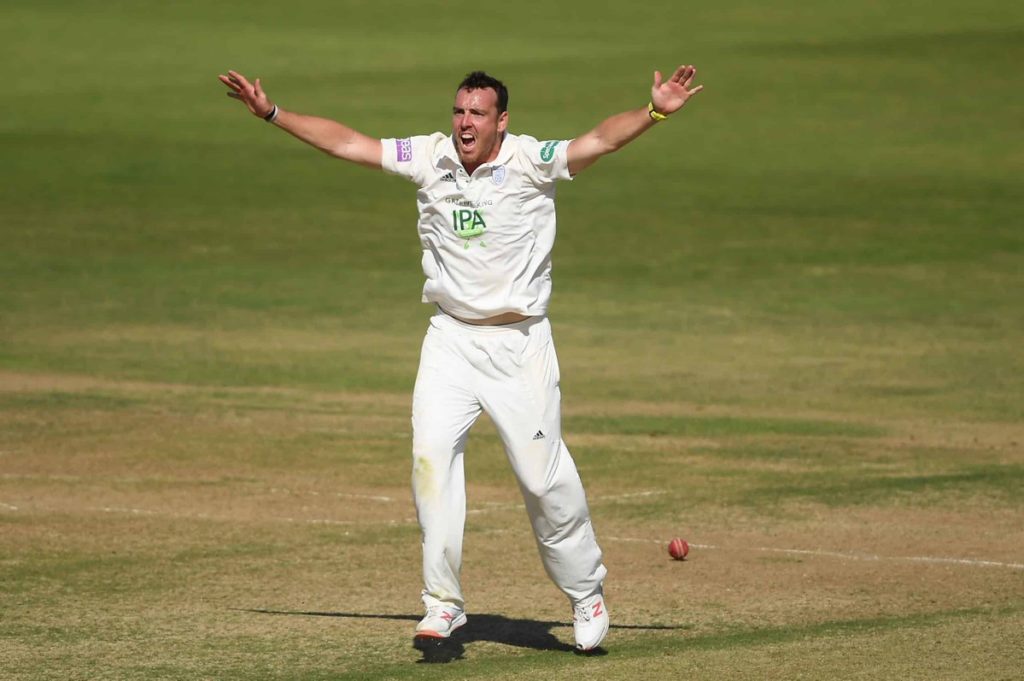There are a clutch of former Kolpak players who have become eligible to play for South Africa again. Not considering them because of how one perceived their career decision is juvenile, writes SA Cricket magazine editor RYAN VREDE.
On Wednesday, the Titans announced that Kyle Abbott, who signed a Kolpak deal with Hampshire in 2017, would play for them after agreeing a short-term deal.
Abbott’s return to domestic cricket, made possible by travel restrictions which have prevented him from returning to England from his home in Durban, raised questions about his international aspirations with the Proteas.
Brexit has forced the cancellation of all Kolpak registrations, but an increase in the number of overseas players permitted per team in the County Championship and the Royal London Cup means that several Kolpak players, including Abbott, have simply moved to overseas status.
This status comes with the added benefit of them becoming available for international selection again, something they were forced to sacrifice when signing Kolpak deals.
This was the main line of questioning when Abbott fronted the media on Thursday.
‘At the moment, [international cricket] is not in my immediate view. I had a very tough 2020 not playing cricket. I need to get back into the space where I was 18 or 15 months ago,’ Abbott said when asked about his international aspirations.
I’ve been dismayed by the widespread rejection of Abbott and his ilk, with many basing their criticism on a misguided sense of patriotism or, more specifically, their belief that players who sign Kolpak deals show a lack thereof.
Players securing their financial future through a Kolpak deal are not unpatriotic. They’re smart. Add to that the opportunity to experience a new culture, being geographically perfectly placed to travel to a myriad bucket-list destinations, all while playing the game you love and are highly skilled at – and you’ll understand the lure of a Kolpak deal, particularly for those nearing the end of their careers.
South Africans who excel in their professions are recruited to foreign companies daily. They are not vilified for being unpatriotic. So why should cricketers?
Part of the answer lies in the emotive nature of sport, particularly the emotional investment many make in the national team. For these people, players carry their hopes of success and success is critical to their sense of self-worth and happiness. When highly skilled players like Abbott sign Kolpak deals, that success is less certain, and a decision that is made for purely professional and lifestyle reasons, is experienced as deep betrayal.
This is the most unsophisticated thinking on the issue, but it is prevalent, which is sad. I understand that many high-ranking people at Cricket South Africa still hold a grudge against Abbott for signing the Kolpak deal in 2017. So, too, towards Simon Harmer, Rilee Rossouw and Duane Olivier.
These players, and a clutch of others, have all now become available to the Proteas selectors. Not all of them have excelled in the manner Abbott and Harmer have, and thus not all are worth considering. However, Abbott has taken 182 wickets in three seasons in the Championship at an average of 18.62. Harmer has taken 212 wickets at 20.25 in three Championship seasons, two of which ended in Essex being crowned champions. It is self-evident that they are among the best South Africans playing cricket anywhere in the world.
Considering that the incumbents in the national team aren’t exponentially better – it would take a brave man to argue that Lutho Sipamla and Lungi Ngidi are better seamers than Abbott, while Keshav Maharaj is a dependable spinner but not a irreplaceable one – it is senseless to dismiss them in a Proteas context because of the way you feel about them deciding to leave years ago.
It is even more laughable that those with the power to call them up to the Proteas set-up would choose not to do so based on their lingering feeling of rejection. They have a mandate to give the Proteas the best chance of winning. Betraying that mandate based on an immature emotional response is simply juvenile and man children shouldn’t have the power to determine the Proteas’ fortunes.







